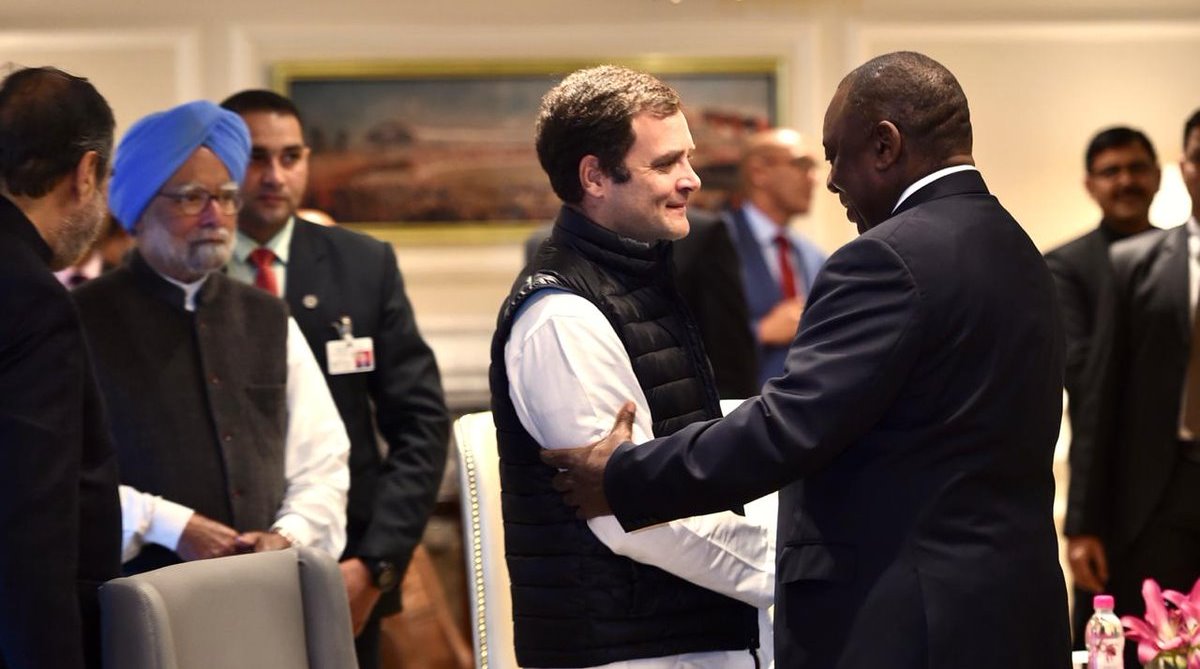Rahul Gandhi hits out at PM, Adani in Rae Bareli
Congress leader Rahul Gandhi on Friday hit out against Prime Minister Narendra Modi and Industrialist Gautam Adani on the second day of his Rae Bareli visit.
A Congress delegation led by Gandhi and former Prime Minister Manmohan Singh met Ramaphosa, also the President of African National Congress (ANC).

Congress president Rahul Gandhi and senior Congress leaders meet South African President Cyril Ramaphosa. (Photo: Twitter/@INCIndia)
Congress President Rahul Gandhi will be visiting South Africa on the invitation of President Cyril Ramaphosa who was the chief guest at the 70th Republic Day parade here on Saturday.
A Congress delegation led by Gandhi and former Prime Minister Manmohan Singh met Ramaphosa, also the President of African National Congress (ANC).
Advertisement
President Ramaphosa invited Rahul Gandhi to visit South Africa and the invitation was accepted, Congress said. Details are being worked out by the foreign affairs departments of the two parties, the party said.
Advertisement
Both the parties share century-old historic ties, and leaders had a discussion on party-to-party, regional and global issues.
“President Ramaphosa lauded India’s role in the fight against Apartheid. Both, ANC president and Rahul Gandhi reaffirmed their commitment to further strengthen bilateral relations between the two fraternal parties,” the party said.
Ramaphosa arrived in the capital on Friday for a two-day visit.
Following delegation-level talks led by Prime Minister Narendra Modi and Ramaphosa, India and South Africa on Friday signed an agreement to further deepen their Strategic Partnership, including in political, economic and defence spheres.
The Three-Year Strategic Programme of Cooperation is aimed at enhancing the Strategic Partnership Agreement that was signed in 1997 by then Prime Minister HD Deva Gowda and South African President Nelson Mandela.
According to a joint statement issued after the meeting, both sides “emphasised the need to further deepen relations in the political, economic, defense, scientific, consular and socio-cultural spheres”.
Advertisement